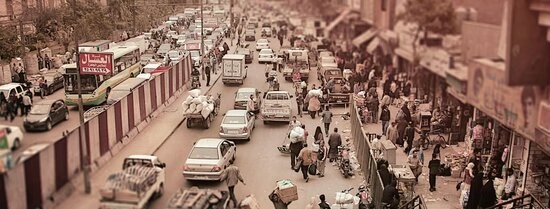This free online course explores how African cities can plan for climate resilience. Developed by IHS in collaboration with United Cities and Local Governments of Africa (UCLG-Africa), African Local Governments Academy (ALGA) and Erasmus University Rotterdam, this course provides a foundation for understanding urban exposure and sensitivity to climate change.
Course trailer

Course description
Planning for Climate Change in African Cities is a 5-week online course that delves into the impacts of climate change on urban areas and the strategies cities can employ to manage these challenges. The course introduces basic concepts of urban resilience and adaptation, using case studies from various African cities to illustrate these concepts. Participants will explore different approaches to climate change planning, including ad hoc, strategic, and mainstreaming methods. The course covers the planning cycle from initial assessment to monitoring and evaluation and presents decision support and assessment tools for prioritising climate change actions. Through a simulated exercise, learners will apply their knowledge and practice decision-making skills in a real-world context.
Who is this course for?
This course is designed for urban planners, local government officials, policymakers, and professionals involved in climate change adaptation and urban development in Africa. It is ideal for those seeking to enhance their understanding of urban climate resilience and develop practical skills for planning and implementing climate adaptation strategies in African cities.
What will you achieve?
By completing this course, you will be able to:
- Recognise the effects, impacts, and drivers of climate change in cities
- Understand the drivers of urban risk and vulnerability in the context of climate change
- Distinguish the typologies, approaches, and tensions of climate change adaptation
- Explain the different approaches and steps in climate change planning
- Examine the decision support and assessment tools for climate change
- Develop a climate change plan based on your city's context
Lecturers
- Dr. David Dodman, General Director, Institute for Housing and Urban Development Studies (IHS) of Erasmus University Rotterdam
- Stelios Grafakos, Head of European Office, Global Green Growth Institute
- Veronica Olivotto, Expert in Climate Relocation and Managed Retreat, The Zolberg Institute on Migration and Mobility
- Dr. Andy Gouldson, Professor of Environmental Policy at University of Leeds
- Dr. Diana Reckien, Associate Professor at Faculty of Geo-Information and Earth Observation (ITC), University of Twente
- Dr. Shuaib Lwasa, Associate Professor at the International Institute of Social Studies (ISS) of Erasmus University Rotterdam
- Marcus Mayr, Senior Urban Sector Specialist, Green Climate Fund
- Dr. Nathalie Jean-Baptiste, Head of Programmes, Julius Baer
How to join this course
The course is available on Coursera. Registration is free, and you will need to create a Coursera account to participate. Enrol now to start building your expertise in urban climate resilience and planning.
